Office sauna: Must-have or hot air?
- Published
Dolly Parton sings that "you're just a step on the boss-man's ladder" - not much motivation for workin' nine to five.
So how can the modern office attract people to tumble outta bed and commute into work, especially when many employees could simply turn on their laptop and get things done? And how can that office make you more productive?
One idea, popular among new technology companies, is to mix work and play.
Stroll around the London headquarters of peer-to-peer money transfer service TransferWise in Shoreditch, London, and you see scooters, a hammock and, would you believe, one of these:
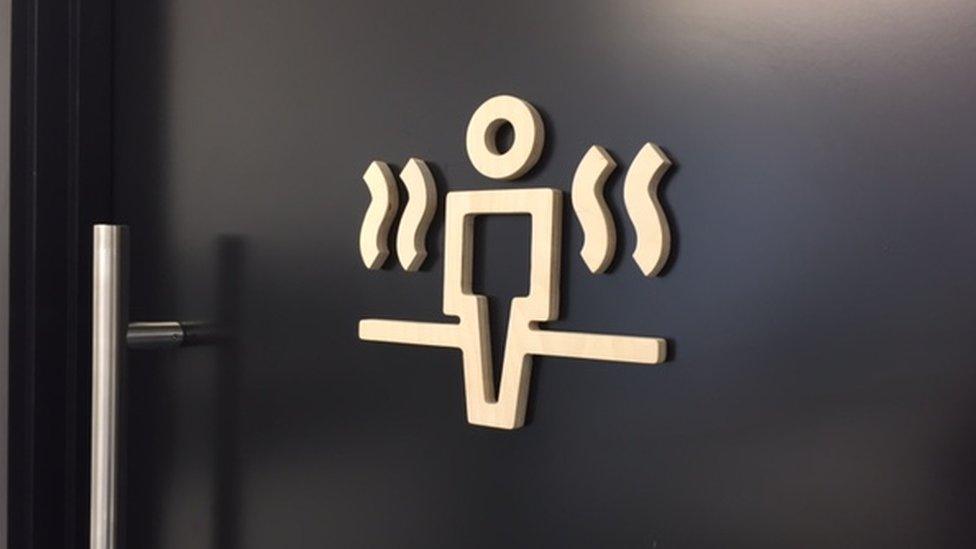
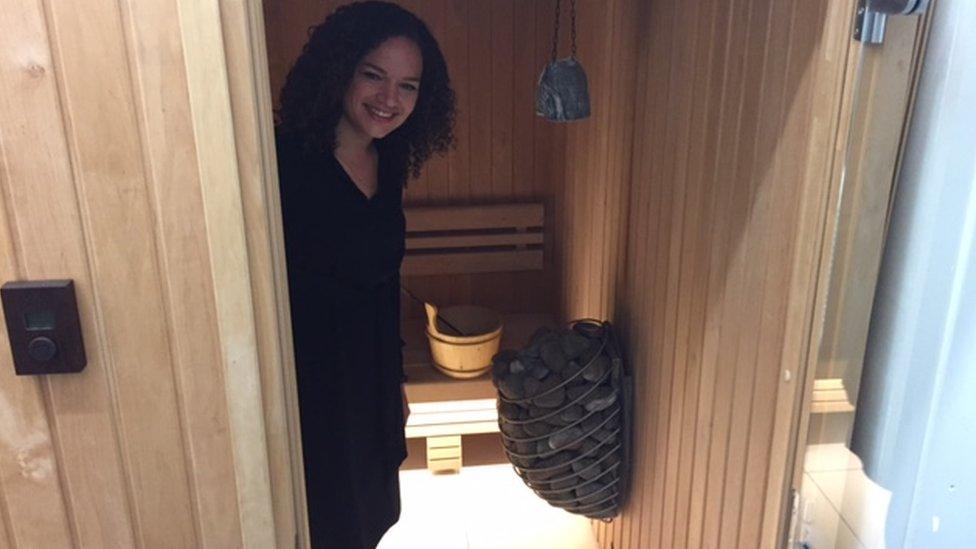
Inez Miedema in the TransferWise office sauna
Companies like this say such an office helps create a culture where staff enjoy coming to work, and are more productive as a result. For others, office perks like a sauna are simply a load of hot air.
Twenty-somethings might enjoy the perks, says Clare Coatman, of trade union body the TUC, but they must be in addition to, rather than instead of, decent pay and conditions.
"Compare the cost of buying a ping-pong table to offering a living wage, rather than a minimum wage, and you start to cut through to the reality," she says.
"Perks are nice, but they do not pay the bills."
Soft furnishings
Taavet Hinrikus, founder and chief executive of TransferWise, says the aim of his firm's offices around the world is to "create an environment for people to do their best work".
Finding a premises that allowed everyone to work on the same floor was important, he says. After that, many of the ideas of how to furnish it came from the staff themselves.
The overwhelming view, and the resulting set-up, was a mix of areas that suited certain tasks. Various soundproofed phone booths are dotted around. There are traditional desks, soft seating ("the padded cell") and a kitchen with background music. Friday's playlist included Gregorian chant and the Bee Gees (separately).
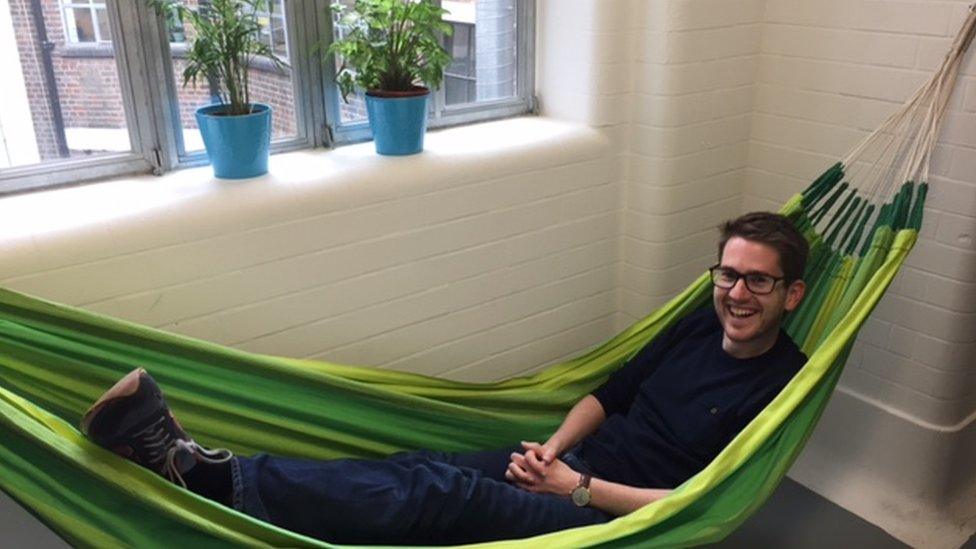
The TransferWise headquarters in London features a hammock...
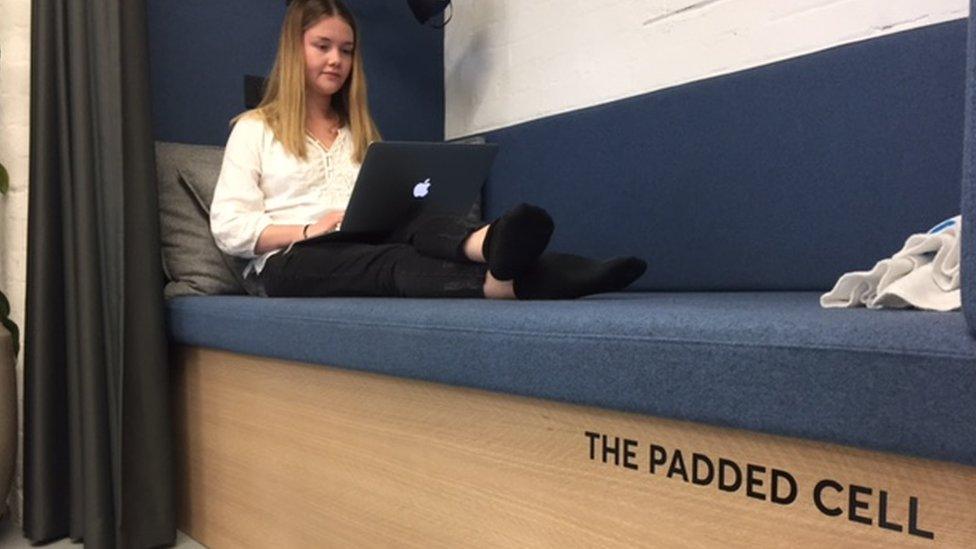
...other soft seats...
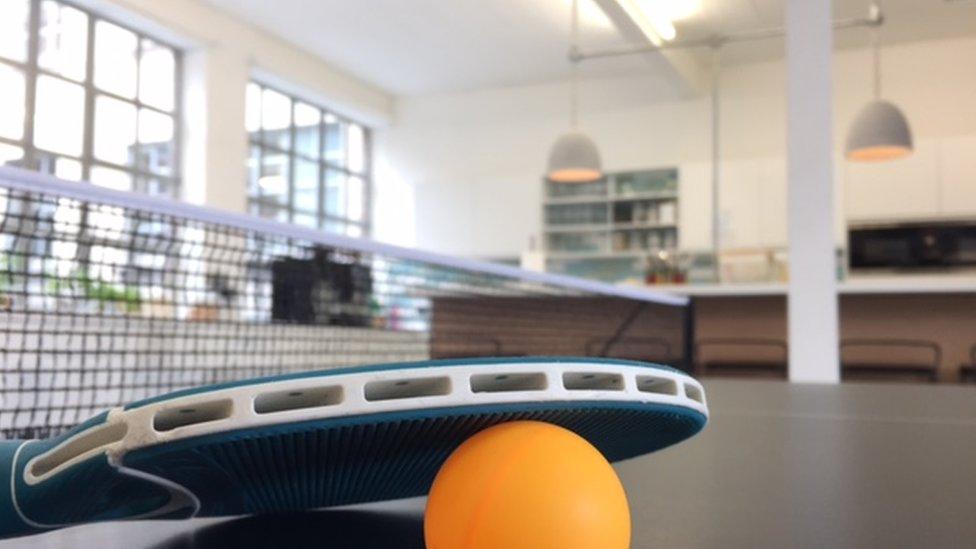
...table tennis next to the staff kitchen...
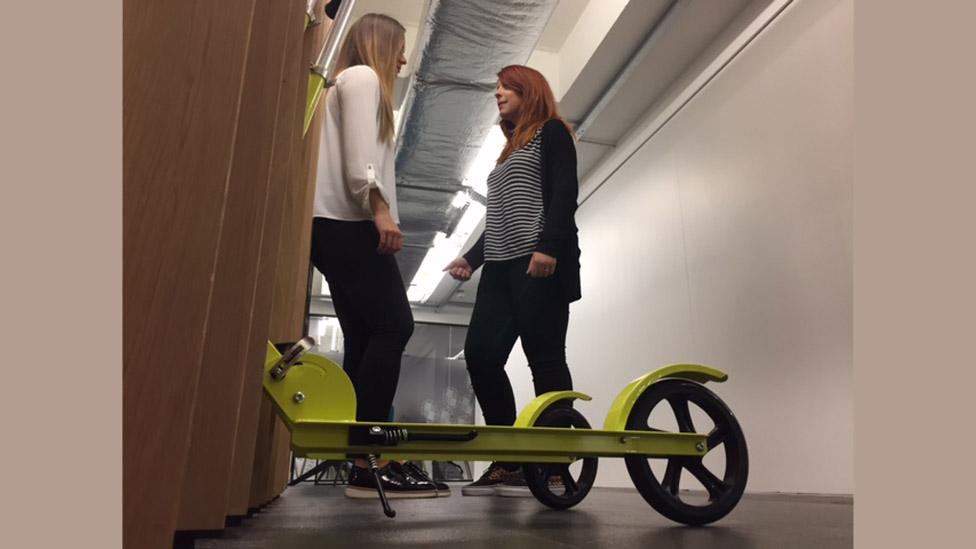
...and adult scooters to get around the office
Speaking in the Magic Roundabout meeting room, Inez Miedema, head of affiliates and partnerships at TransferWise, admits that her parents - during a tour of the office - saw people playing a football computer game and questioned whether any work actually got done.
Ultimately each team has performance indicators to ensure they are doing a good job and those failing to do so will be challenged.
Pay packet
The trendy office and flexibility at work helps to attract talent, she says, but it is far from the only attraction, not least pay.
There is a keen eye cast over competitors and similar businesses to benchmark the competitiveness of salaries. As the business has grown in size, so has the package of other benefits offered to staff.
The TUC's Clare Coatman says young people really want job security and pay progression - much the same as any other generation of workers. No matter how trendy the office, their focus was still on the job, not on the jest.
A report by accountancy firm PwC said career progression was the top priority for "millennials" - the term typically applied to those born between 1980 and 1999 - who expected to rise rapidly through an organisation. Some 52% of those asked said this was the main attraction in an employer, coming ahead of competitive salaries in second place (44%).
The trouble is, says Ms Coatman, that they have very low expectations of the workplace. This theory was echoed in a recent poll commissioned by the RSA which suggested that fewer than one in 10 workers thought that "all work was fair and decent".
As a result younger workers may choose to move to another job, rather than fight to improve the terms of their current roles, Ms Coatman says.
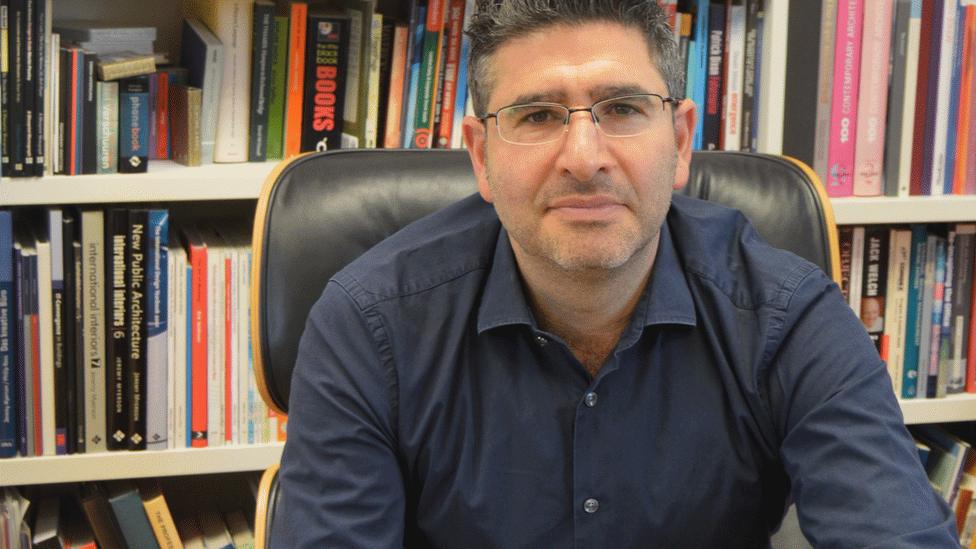
Philip Ross says the modern office needs to be fluid
A small, start-up tech firm can quite easily make their office attractive to the young worker, but what about bigger, more traditional companies?
Many staff can carry the contents of their desk around with them, usually digitally on a laptop, says Philip Ross, founder and chief executive of UnWork.com, which promotes new ways of working.
Young tech-savvy staff, particularly, can work anywhere so why bother getting on a packed bus or sit in a traffic jam to get to a chicken-coop office?
"As a place for people, both employees and clients, it has to work hard to pull people in - there needs to be a compelling reason to come to work," UnWork says in a report about a recent project for a business in New York.
The office priorities for staff were "air quality, daylight, good acoustics, great coffee and food". The motivation for the business was a 30% cut in property costs per person, by using the space more efficiently.
What did the "office of the future" look like in years gone by?
Some of the vocabulary about modern offices - such as "app-centric workplace" and "collision coefficient" - may raise eyebrows among your average office worker.
Yet, the logic behind the lexicon is worth a closer look.
Mr Ross says that offices should allow people to move around and work with those engaged in the same "activities". The design of a building should encourage people to communicate in person, rather than by email or in formal meetings.
Meanwhile, an office app may suggest who in an organisation is free for lunch at the same time. Then, it will point out which of them are working on a similar project. Alternatively it may highlight that some have the same interests, such as running marathons, and match-make them for lunch.
Peak team?
However, Mr Ross argues that, among tech start-ups in particular, there has been a "rush to collaboration". The trend towards shared space means it can be difficult to find anywhere for staff to quietly get work done on their own.
In the end, he says, there needs to be areas of an office to fit different types of work.
That, it seems, may even include a sauna in the corner.
- Published9 May 2017
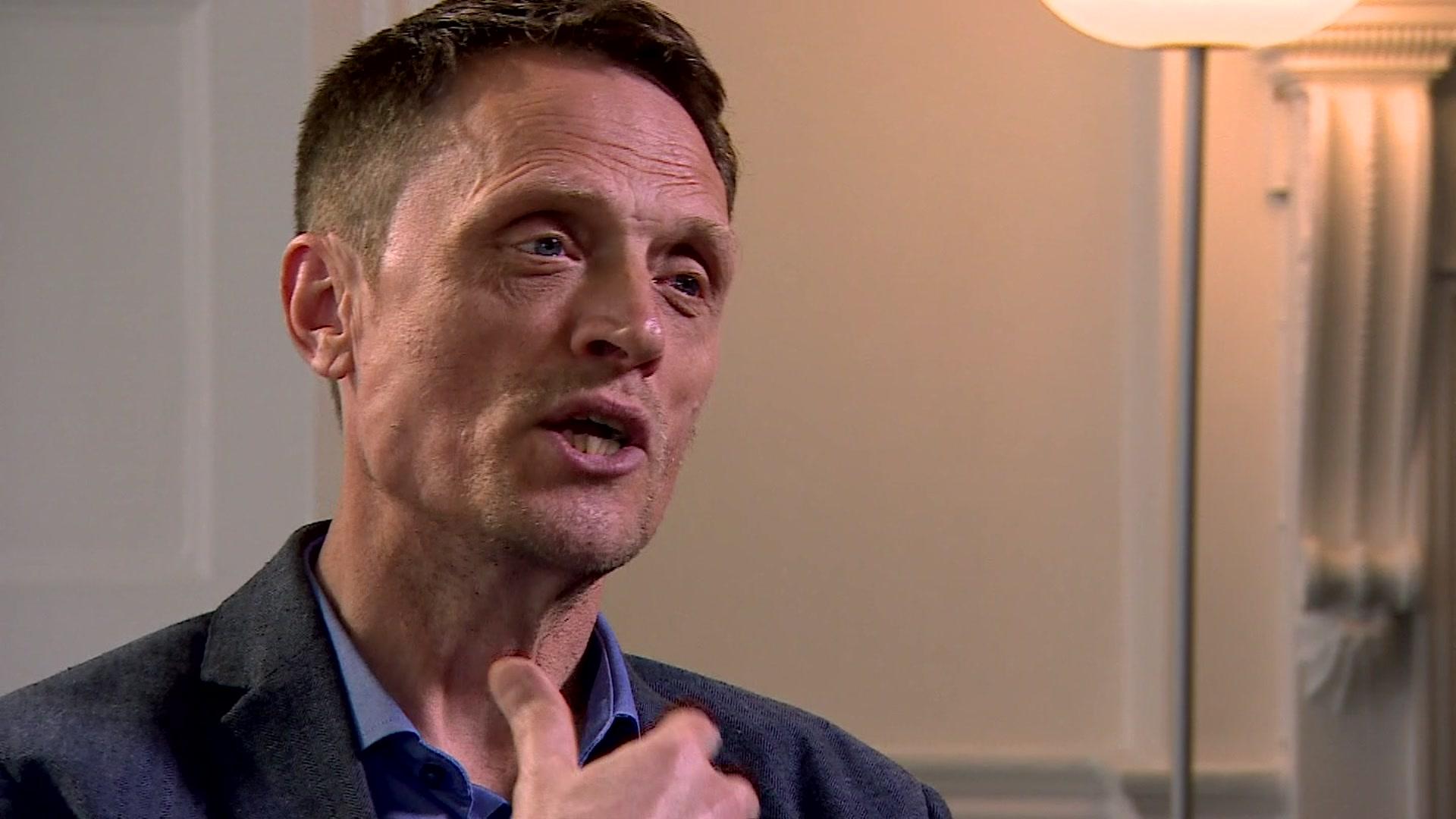
- Published14 March 2017
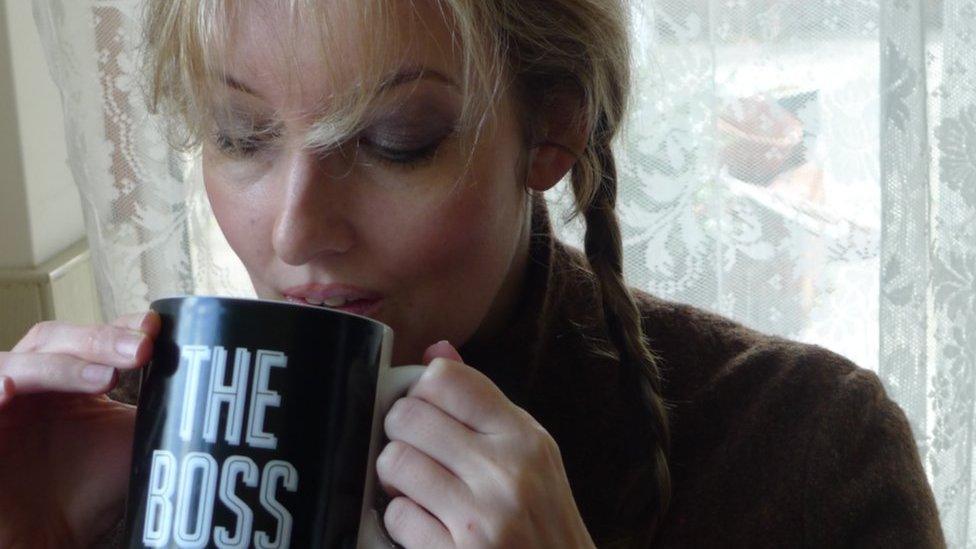
- Published16 January 2017

- Published3 June 2016
